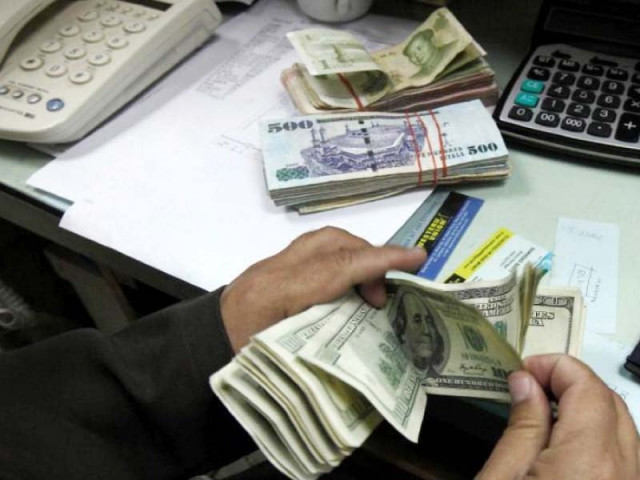Rupee falls for 12th consecutive day
Delay in resumption of IMF loan programme has increased risk of default

Pakistani currency maintained its free-fall on the 12th consecutive working day, as it hit a new all-time low of Rs200.93 against the US dollar on Monday amid growing political and economic instability in the country.
A further drop in the domestic currency may not be ruled out following the reports that Doha talks for resumption of the IMF (International Monetary Fund) loan programme may be delayed by a few days or weeks.
The State Bank of Pakistan (SBP), however, aggressively increased the benchmark interest rate by 150 basis points to 13.75% on Monday to support the rupee against the greenback.
The rupee dropped by 0.39% to Rs200.93 against the greenback amid Doha talks, as compared to Friday’s close at Rs200.14, according to the central bank data.
With this fresh devaluation, the domestic currency has cumulatively dropped by a significant 8.21% (or Rs15.24) in the past 12 working days to date.
It has remained under pressure owing to fast depletion in the country’s foreign exchange reserves amid elevated import payments and foreign debt repayments.
The country’s foreign exchange reserves have dropped to a critical low level of six-week import cover at $10.2 billion. The reserves have depleted fast by around $7 billion since January 2022 to $10.2 billion.
Islamabad is to repay $4.5 billion in foreign debt in two months (May and June), while import bill may remain high in May considering the authorities concerned decided to import expensive liquefied natural gas (LNG) to manage the energy crisis at home.
The low reserves and a likely slight delay in resumption of the IMF $6 billion loan programme have increased the risk of default on international payments.
The IMF had conditioned the revival of its multi-billion dollar loan programme with withdrawal of subsidies on petroleum products and electricity. The PML-N coalition government, however, had decided not to pass-on the increase in international oil prices to end consumers in order to avoid a new high wave of inflation.
Experts projected that the inflation reading would spike to 15% or more if the government decides to increase the energy prices.
Market speculations suggest a technocrats’ government may be installed in the centre to take tough economic decisions, like ending subsidies on energy products, and succeed in reviving the IMF loan programme, as Prime Minister Shehbaz Sharif has yet remained unsuccessful in winning consensus from his allies to do so.
The resumption of the IMF programme would help the rupee to partially recover against the greenback.
Gold at record high
The free-fall in rupee’s value took gold prices to a new all-time high at Rs141,650 per tola (11.66 gram) in Pakistan on Monday.
The gold surged by Rs2,350 per tola in a single-day on Monday as compared to Saturday’s close at Rs139,300 per tola, according to All Sindh Saraf and Jewellers Association (ASSJA).
The surge in gold prices is partly seen due to a fresh devaluation of 0.34% in rupee, as the country meets local demand for the commodity through imports.
Besides, an increase of $15 per ounce (31.10 gram) in gold in the global markets to $1,862 per ounce also convinced the local bullion pricing body to revise up the rate.
The rupee-dollar parity, global price of the precious yellow metal and domestic demand would continue to play an important role in determining bullion price for the local markets.
Published in The Express Tribune, May 24th, 2022.
Like Business on Facebook, follow @TribuneBiz on Twitter to stay informed and join in the conversation.



















COMMENTS
Comments are moderated and generally will be posted if they are on-topic and not abusive.
For more information, please see our Comments FAQ